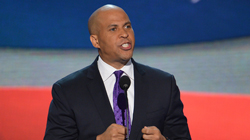Long-Term Unemployment Helped 24 Million People During Recession
Approximately 1.3 million Americans received their last unemployment check once a federal program supplying extra weeks of benefits expired on Dec. 28, 2013. Beginning on Jan. 1, the maximum period allow for a citizen on unemployment was dropped from 73 weeks to 26 weeks.
The extended benefits program began during the Bush administration in 2008. It was in response to the long-term unemployment during the recession. It was able to help pay unemployment benefits to about 24 million Americans.
Since the expiration of the benefits, Congress has been back and forth on creating a proposal on whether to extend the benefits again. According to The Washington Post, Democrats proposed to pay for $6 billion extension with “pension smoothing,” meaning temporarily raising taxes from employers by allowing them to pay less now into employee pension funds.
In an interview, Labor Secretary Thomas Perez said that major components of the plan that the Obama administration has for expanding the economy includes proposals for unemployment benefits, as well as to raise the minimum wage and overhaul federal immigration laws.
“If at first you don’t succeed, try, try again,” Perez said. “If you cut these benefits, you not only hurt those people but you also create a further drag on the economy.”
However, Republicans continue to block the renewal of federal jobless aid. “We picked up four [GOP] votes. The other vote is in the Republican caucus. We can’t find it,” said Democratic Sen. Jack Reed of RI, who has been leading the effort to revive the benefits.
On Feb. 12, extending the federal unemployment benefits did not make the agenda discussed by Congress. Now on a two week recess, the issue could come up again by Congress at the end of Feb. This is two months after the benefits were cut, and the number of citizens having their benefits cut to continue.
“It is politics rather than economics that led Congress to end extended unemployment benefits,” says Dr. Steven Pressman, professor of economics and finance. “Unemployment insurance in the U.S. is fiscally sound, so that was not the reason to cut extended benefits. And the program can always be supported with general tax revenues, if necessary.”
“There are, however, two problems with the U.S. unemployment program. First, benefits are rather meager in the U.S., especially compared to other developed countries. On average, unemployment insurance in the U.S. replaces a bit more than half of previous wages. In western Europe and in the Nordic countries the figure is around 70 percent on average. In Canada, our neighbor to the north, it is more than 60 percent.”
“Second, it is hard to collect benefits in the U.S. Any parent that leaves the labor force for a year or more to take care of a new child is not eligible for unemployment benefits when they start looking for a new job. This is not the case in most European countries.”
In response, Republicans have said that Democrats have done nothing but make unemployment and poverty more comfortable, while overseeing insufficient job growth, acording to The New York Times. They believe that overly generous government support only encourages dependency, a thinner safety net would be more effective.
Employers were telling me they had vacant jobs, but people would say, ‘hold that job until my unemployment benefits end.’” said Gov. Pat McCrory, a Republican who is the prime mover behind the policy. “I heard that time and time again. Now, employers are telling us that people are coming in and filling out applications to accept jobs, not to meet the requirements of unemployment.”
Pressman sees this differently than the Republican party. “Eliminating extended unemployment benefits hurts people and hurts families that have relied on this money all the while hoping that jobs become more plentiful soon. It also hurts all of us. When some people are not spending because they have no money, the whole economy suffers; firms will lose sales and profits, and workers will lose hours and wages. Some may even lose their jobs.”
In the state of NJ almost half of the unemployed have been out of work for longer than 26 weeks, according to the Economic Policy Institute of data from the U.S. Census Bureau and Bureau of Labor Statistics.
Courtney Woodwards, a junior political science major said, “I think there definitely could have been a better solution. It is very hard to get a job right now. Even those who are educated and qualified, struggle. Unemployment gets a bad name, but it’s not for ‘lazy people who do not want to work.’ Hard working people need that money too.”
Natorye Miller, a freshman political science major, agrees. “I feel as though doing this for the economy is wrong because people make other people money.
The expiration of benefits does not only affect states’ unemployed workers. The program sent more than $25.6 billion in entirely federal dollars to states in 2013, and varying estimates have said the expiration could cost as many as 300,000 jobs nationwide.



